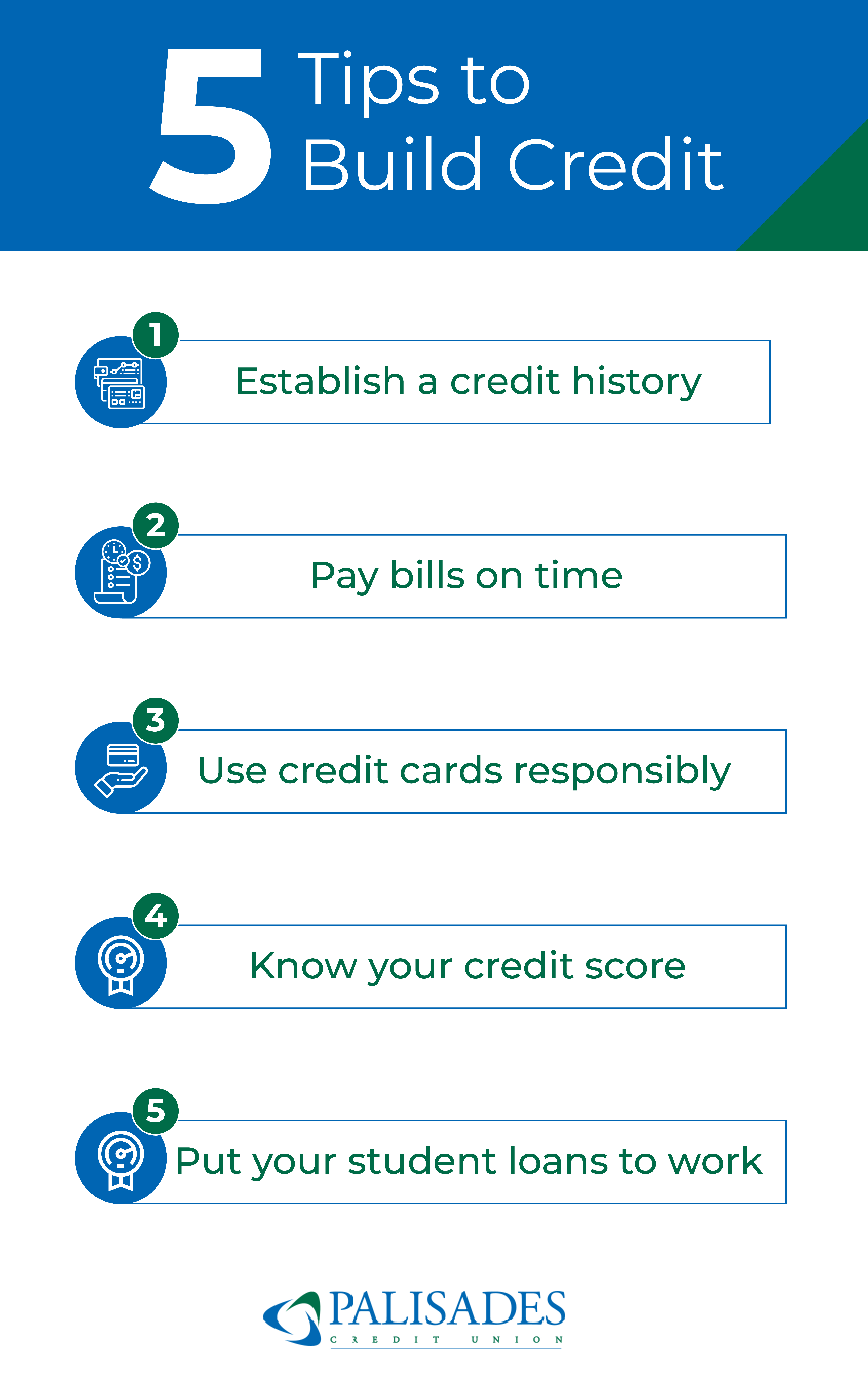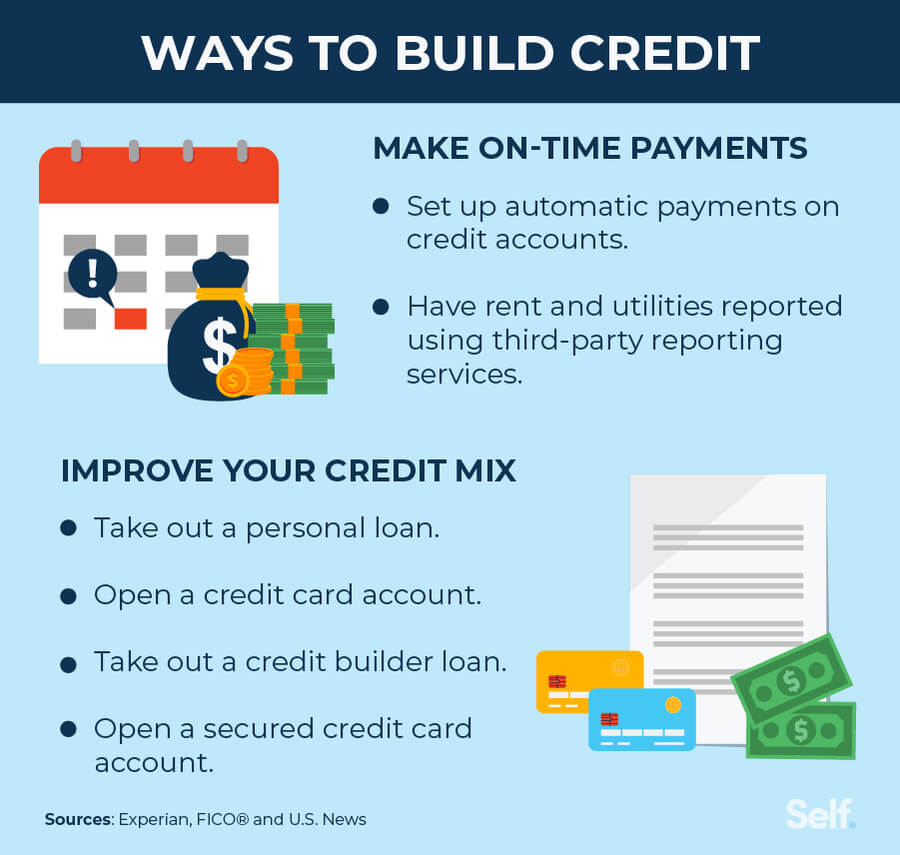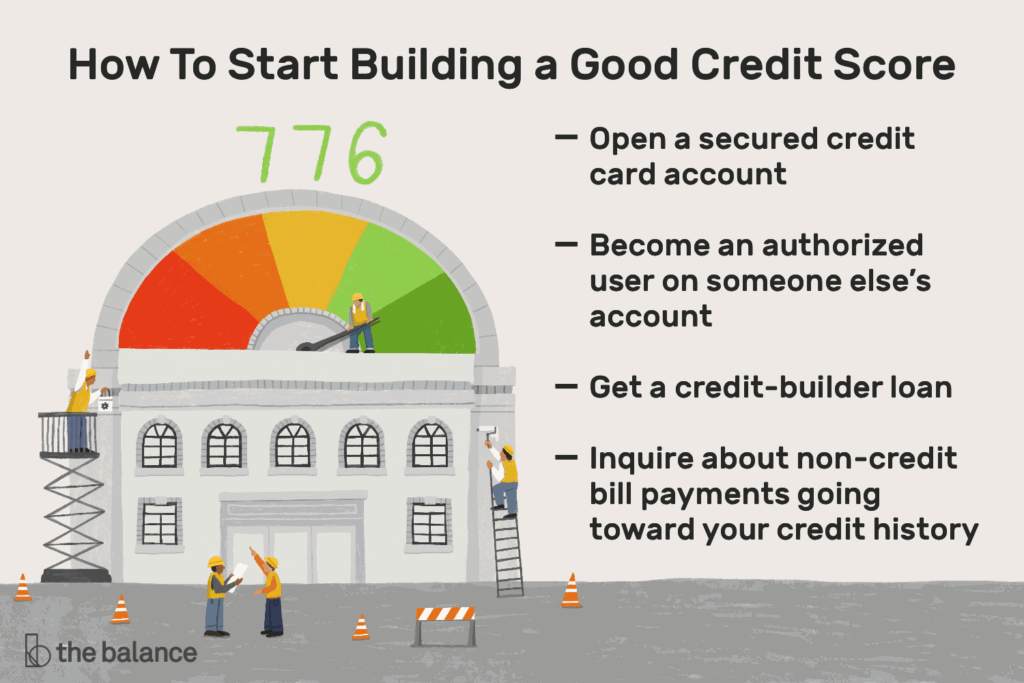So, you’re looking to build some positive credit history, huh? Well, my friend, you’ve come to the right place. In this article, we will delve into the world of credit and uncover some powerful strategies to set you on the path to financial success.
First, we’ll explore the importance of a good credit history and how it can impact your financial future. From there, we’ll dive deep into a variety of effective strategies that can help you establish and maintain a positive credit history. Whether you’re just starting out or looking to improve your current standing, these tried-and-true methods will get you on the right track. So, get ready to take control of your financial destiny and unlock the doors to endless opportunities. Let’s get started, shall we?
1. Establish Credit
Building a positive credit history is essential when it comes to achieving your financial goals. Establishing credit can be a bit daunting if you’re just starting out, but with the right strategies, you can lay a solid foundation for your creditworthiness.
1.1 Open a Credit Card Account
One of the best ways to start building credit is by opening a credit card account. Look for credit cards that are designed for individuals with limited or no credit history. These cards typically have lower credit limits and may require a security deposit. By using your credit card responsibly and making timely payments, you can demonstrate your ability to manage credit.
1.2 Apply for a Small Loan
Another effective strategy for building credit is to apply for a small loan. This could be a personal loan from a bank or a credit-building loan from a credit union. By borrowing a small amount and repaying it on time, you can show lenders that you are responsible with credit. Be sure to shop around for the best interest rates and loan terms before making a decision.
1.3 Become an Authorized User
If you have a family member or close friend with a good credit history, you can ask them to add you as an authorized user on one of their credit cards. As an authorized user, the positive payment history and credit utilization of the primary cardholder can also be reported on your credit report. However, be cautious and make sure that the primary cardholder has a good credit history, as their mistakes could negatively impact your credit.
2. Pay Bills On Time
One of the most important factors in building positive credit history is paying your bills on time. Late payments can have a significant negative impact on your credit score, so it’s crucial to prioritize timely payments.
2.1 Set Up Payment Reminders
To avoid missing any payments, set up payment reminders. This could be as simple as adding due dates to your calendar or setting up automatic reminders on your phone. Timely payments demonstrate your financial responsibility and can boost your creditworthiness.
2.2 Automate Payments
Another effective way to ensure timely payments is by automating your bill payments. Most banks and credit card issuers offer the option to set up automatic payments. By linking your accounts and authorizing automatic withdrawals, you can eliminate the risk of forgetting to make a payment.
2.3 Prioritize Timely Payments
If you’re struggling with multiple bills and limited funds, it’s crucial to prioritize timely payments. Late payments on credit cards, loans, and other bills can have a lasting impact on your credit. Focus on paying at least the minimum amount due on all your accounts to maintain a positive payment history.

This image is property of www.palisadesfcu.org.
3. Keep Credit Utilization Low
Credit utilization refers to the percentage of your available credit that you’re currently using. Keeping your credit utilization low is key to building and maintaining a positive credit history.
3.1 Understand Credit Utilization
To understand credit utilization, you need to know the difference between your credit limit and your current balance. For example, if you have a credit card with a $1,000 limit and a balance of $500, your credit utilization is 50%. Lenders prefer to see lower credit utilization, ideally below 30%, as it suggests responsible credit management.
3.2 Pay Off Balances in Full
To keep your credit utilization low, it’s advisable to pay off your credit card balances in full each month. This not only helps avoid interest charges but also keeps your credit utilization ratio low. If you’re unable to pay off your entire balance, try to keep it as low as possible to minimize the impact on your credit.
3.3 Increase Credit Limits
Another strategy to keep credit utilization low is by requesting credit limit increases. As you demonstrate responsible credit behavior, contact your credit card issuer and inquire about increasing your credit limit. Be cautious not to use this increase as an excuse to accumulate more debt – the goal is to have a higher credit limit and a lower balance, maintaining a healthy credit utilization ratio.
4. Diversify Credit Types
Having a diverse mix of credit accounts can demonstrate to lenders that you can handle different types of credit responsibly. This can positively impact your credit score and build a strong credit history.
4.1 Have a Mix of Credit Accounts
Consider having a mix of credit accounts, such as credit cards, loans, and a mortgage. This shows lenders that you can handle different types of credit responsibly. However, avoid taking on more credit than you can handle. Only open new accounts when necessary and ensure you have a solid plan for repayment.
4.2 Consider Different Types of Loans
In addition to credit cards, consider applying for different types of loans. This could include student loans, auto loans, or personal loans. When managing these loans responsibly and making timely payments, you’ll demonstrate your ability to handle various financial obligations and build a positive credit history.

This image is property of images.ctfassets.net.
5. Monitor Credit Reports
Regularly monitoring your credit reports is crucial in building and maintaining a positive credit history. By staying informed, you can detect any errors or potential fraud and take the necessary steps to rectify them.
5.1 Get Free Credit Reports Regularly
Under federal law, you’re entitled to a free credit report from each of the three major credit bureaus – Equifax, Experian, and TransUnion – once every 12 months. Take advantage of this opportunity and review your credit reports regularly to ensure their accuracy.
5.2 Review Reports for Errors
When reviewing your credit reports, pay close attention to any errors or discrepancies. These could include incorrect personal information, accounts that don’t belong to you, or inaccurate payment history. If you find any errors, contact the credit bureaus and the respective creditors to dispute and rectify the information.
5.3 Identify Potential Fraud
Monitoring your credit reports also allows you to spot any signs of potential fraud. Look for unfamiliar accounts, unauthorized inquiries, or suspicious activity. If you suspect fraud, immediately contact the credit bureaus and your creditors to report the issue and take steps to protect your identity.
6. Avoid Excessive Credit Inquiries
When applying for credit, lenders often request your credit report to assess your creditworthiness. However, excessive credit inquiries within a short period can have a negative impact on your credit score.
6.1 Understand the Impact of Inquiries
Each credit inquiry can have a small negative impact on your credit score. While one or two inquiries are generally expected, multiple inquiries within a short timeframe can imply that you’re actively seeking credit and may be a higher risk borrower. It’s important to be mindful of how frequently you’re applying for credit.
6.2 Limit Credit Applications
To avoid excessive credit inquiries, limit your credit applications to those that are absolutely necessary. Do your research beforehand to determine which lenders are likely to approve your application based on your credit history. Only apply for credit when you’re confident that it’s the right time and you have a good chance of being approved.

This image is property of blog.121fcu.org.
7. Maintain Long-Term Credit Relationships
Building a positive credit history involves maintaining long-term relationships with your creditors. The length of your credit history is an important factor in your credit score calculation, and a longer history demonstrates your ability to manage credit responsibly.
7.1 Keep Old Credit Accounts Open
Rather than closing old credit accounts, consider keeping them open. Even if you’re not actively using them, having older accounts in good standing can positively impact your credit. Closing an old account can shorten your credit history and potentially increase your credit utilization ratio, both of which may have a negative effect on your credit score.
7.2 Regularly Use and Maintain Credit
To strengthen your credit history, it’s important to regularly use and maintain your credit accounts. Make small purchases on your credit cards and pay them off in full each month. This shows potential lenders that you can handle credit responsibly and strengthens your creditworthiness over time.
8. Take Advantage of Credit-Building Tools
In addition to traditional credit-building strategies, there are specific tools designed to help individuals build or rebuild their credit.
8.1 Secured Credit Cards
Secured credit cards are a great option for those with limited or poor credit history. These cards require a security deposit, which serves as collateral for the credit limit. By using a secured credit card responsibly and making timely payments, you can build a positive credit history and potentially transition to an unsecured credit card in the future.
8.2 Credit-Builder Loans
Credit-builder loans, offered by some credit unions and community banks, are loans specifically tailored to help individuals build credit. The borrowed funds are typically held in a savings account or certificate of deposit and released to the borrower once the loan is repaid. As you make regular payments on this loan, the positive payment history is reported to the credit bureaus, helping you establish or improve your credit history.
8.3 Authorized User Accounts
As mentioned earlier, becoming an authorized user on someone else’s credit card can help build your credit history. However, it’s important to ensure that the primary cardholder has a good credit history. Alternatively, some credit card companies offer authorized user accounts specifically designed to help individuals build credit. These accounts function similarly to traditional credit cards but have lower credit limits and may require a security deposit.

This image is property of www.credit.com.
9. Seek Professional Credit Counseling
If you’re struggling with debt or need guidance on improving your credit, seeking professional credit counseling can be extremely beneficial.
9.1 Consult with a Credit Counselor
Credit counselors are trained professionals who can provide guidance on managing debt, improving credit, and creating a personalized plan for building positive credit history. They can help you understand your financial situation, provide strategies for debt repayment, and offer advice on managing your credit responsibly.
9.2 Create a Debt Repayment Plan
A credit counselor can work with you to create a comprehensive debt repayment plan tailored to your specific circumstances. They can negotiate with creditors on your behalf, help you prioritize your debts, and provide support as you work towards becoming debt-free. A well-executed debt repayment plan can significantly improve your credit and set you on the path to financial stability.
10. Be Patient and Persistent
Building a positive credit history takes time and perseverance. It’s important to have realistic expectations and understand that significant improvements won’t happen overnight.
10.1 Building Credit Takes Time
Credit history is built over months and years of responsible credit management. By consistently following the strategies outlined above, you’ll gradually see improvements in your credit score and creditworthiness. Stay committed to your financial goals and be patient as you work towards them.
10.2 Learn from Mistakes and Improve
If you’ve made mistakes with credit in the past, don’t despair. Everyone faces financial challenges at some point. The key is to learn from those mistakes and take steps to improve your credit going forward. Analyze your past decisions, identify areas for improvement, and make a plan to avoid the same pitfalls in the future. By constantly striving to better manage your credit, you can build a strong foundation for your financial future.
In conclusion, building positive credit history is an essential part of achieving your financial goals. By following these effective strategies, including establishing credit, paying bills on time, keeping credit utilization low, diversifying credit types, monitoring credit reports, avoiding excessive credit inquiries, maintaining long-term credit relationships, taking advantage of credit-building tools, seeking professional credit counseling, and being patient and persistent, you can establish and maintain a strong credit profile that will pave the way to financial success. Remember, building credit is a journey that requires discipline, responsible financial habits, and a commitment to ongoing improvement.

This image is property of www.thebalancemoney.com.
